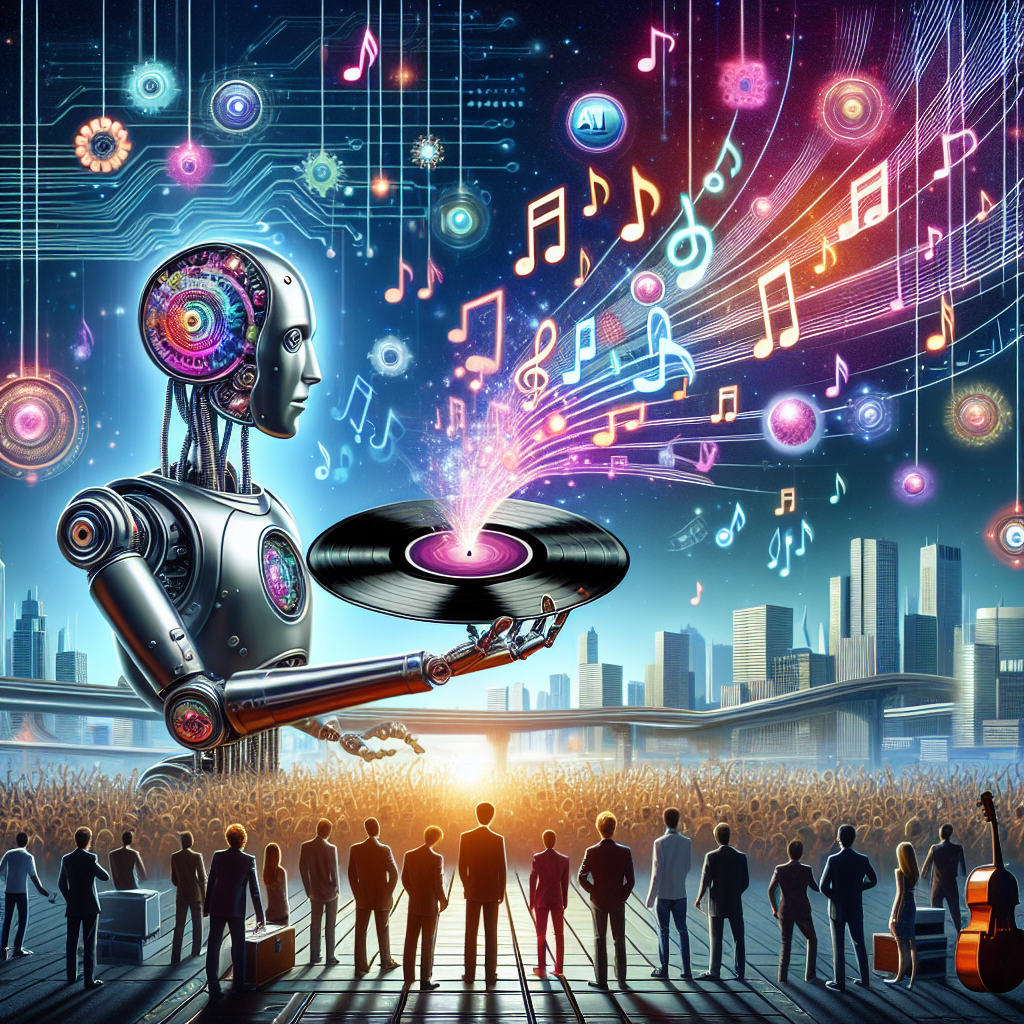AI and the Future of Music Distribution: What Does It Mean for Artists?
In recent years, artificial intelligence (AI) has been transforming the music industry in numerous ways. From creating music to predicting trends and optimizing distribution strategies, AI is reshaping the way music is made, marketed, and distributed. This article will explore the impact of AI on the future of music distribution and what it means for artists.
AI and Music Creation
One of the most exciting applications of AI in the music industry is the ability to create music. AI algorithms can analyze vast amounts of music data to generate new compositions, produce melodies, and even mimic the style of specific artists. This technology has opened up new possibilities for artists looking to experiment with different genres and styles.
For example, AI-powered tools like Amper Music and AIVA can help artists quickly generate music for their projects, saving time and resources. These tools can also be used to create custom soundtracks for films, video games, and other media projects, providing endless creative options for artists.
AI and Music Marketing
AI is also revolutionizing the way music is marketed and promoted to audiences. With the help of AI algorithms, music streaming platforms like Spotify and Apple Music can analyze user data to personalize recommendations and suggest new music based on individual preferences. This targeted approach to marketing helps artists reach a wider audience and connect with fans who are more likely to enjoy their music.
Additionally, AI is being used to predict music trends and identify emerging artists with the potential to become successful. By analyzing social media data, streaming metrics, and other factors, AI algorithms can help music labels and promoters discover new talent and develop strategic marketing campaigns to promote their music.
AI and Music Distribution
When it comes to music distribution, AI is streamlining the process of getting music from artists to listeners. AI-powered distribution platforms like TuneCore and DistroKid offer artists the ability to upload and distribute their music to major streaming services and online stores with ease. These platforms provide artists with valuable insights into their audience demographics, streaming data, and revenue streams, helping them make informed decisions about their music distribution strategies.
AI is also being used to optimize music distribution by analyzing streaming patterns, user behavior, and market trends. By leveraging AI algorithms, music distributors can identify the most effective channels for promoting music, target specific audiences, and maximize the reach and impact of artists’ music.
What Does It Mean for Artists?
For artists, the rise of AI in music distribution presents both opportunities and challenges. On the one hand, AI technology can help artists reach a larger audience, connect with fans, and grow their careers in ways that were not possible before. AI-powered tools can also help artists streamline their creative process, generate new ideas, and experiment with different styles and genres.
On the other hand, the increasing reliance on AI in music distribution raises concerns about data privacy, copyright issues, and the commodification of music. Artists must be vigilant about protecting their intellectual property rights, understanding the terms of their distribution agreements, and ensuring that their music is distributed ethically and responsibly.
FAQs
Q: How can artists benefit from AI in music distribution?
A: AI technology can help artists reach a larger audience, connect with fans, and optimize their music distribution strategies. AI-powered tools can also streamline the creative process, generate new ideas, and provide valuable insights into audience demographics and streaming data.
Q: What are the challenges of using AI in music distribution?
A: Challenges of using AI in music distribution include concerns about data privacy, copyright issues, and the commodification of music. Artists must be aware of the terms of their distribution agreements, protect their intellectual property rights, and ensure that their music is distributed ethically and responsibly.
Q: How can artists protect their music rights in the age of AI?
A: Artists can protect their music rights by understanding the terms of their distribution agreements, registering their music with copyright agencies, and monitoring their music distribution channels for unauthorized use. It is also important for artists to stay informed about developments in AI technology and how it may impact their music rights.

